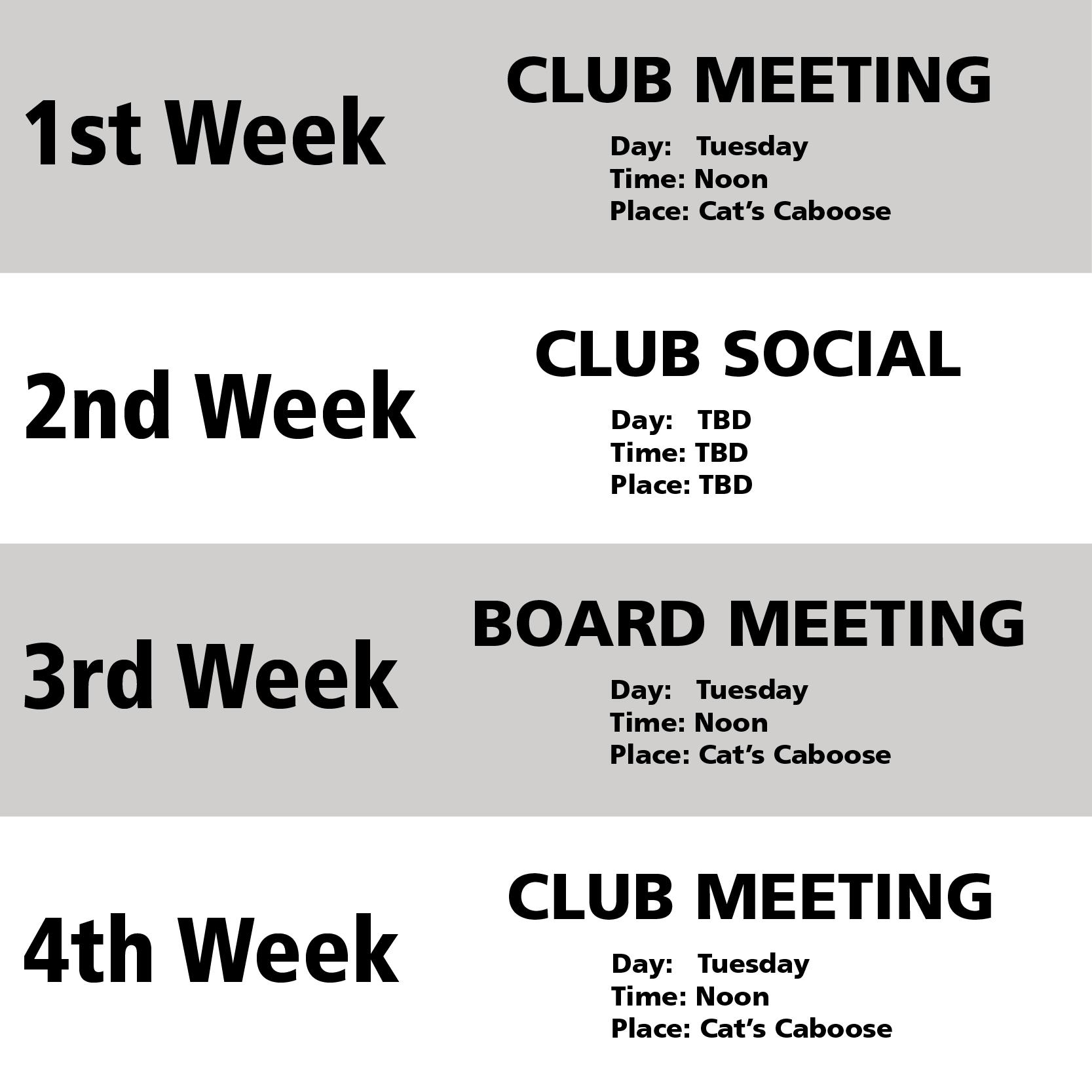
At our April 25th Board of Directors meeting we discussed meeting attendance and the cause for its low numbers. It appears that it's the same club members that are able to attend the club meetings on a regular basis. The main cause that was brought up was that Mondays at noon it's a very difficult day for business owners to take the time off to attend the meeting. The board also made the observation that social events are better attended than regular club meetings.
It was decided that we would try a format that has been adopted by other clubs in the area where we would change one of our three club meetings to a social event with a flexible day, time and venue. the board also adopted a motion to move the club meetings to Tuesdays at noon.
So instead of having three weekly club meeting a month we will have two. Club Meetings will be on the First and Fourth week of the month. The second week will be reserved for Club Social events and the third week for the board meetings.
We are grateful to Cathy Henry, Joey Trussell, and Mike Kevorkian for spearheading the social events committee. We had our first social last Tuesday at Cats Caboose and it was great to see a lot of our club members in a relaxing atmosphere and being able to catch up. Past president Krystal even brought her family for dinner. We are looking forward to more social events like this.
Since 2016, Rotary International has been changing its meeting format and meeting requirements in order to give the ability for more members to participate and attend meetings. Please read Rotary Internationals Frequently Asked Questions about club flexibility:
The following is taken from Rotary International MyRotary:
"Many of the traditional rules and requirements that Rotary clubs have had historically, such as weekly meetings, attendance requirements, morning or lunch meetings, traditional classifications, and high costs, have limited who is able or willing to join. When we join together different perspectives and backgrounds, professions and areas of expertise, talents and resources, we can see challenges in new ways and identify creative solutions."